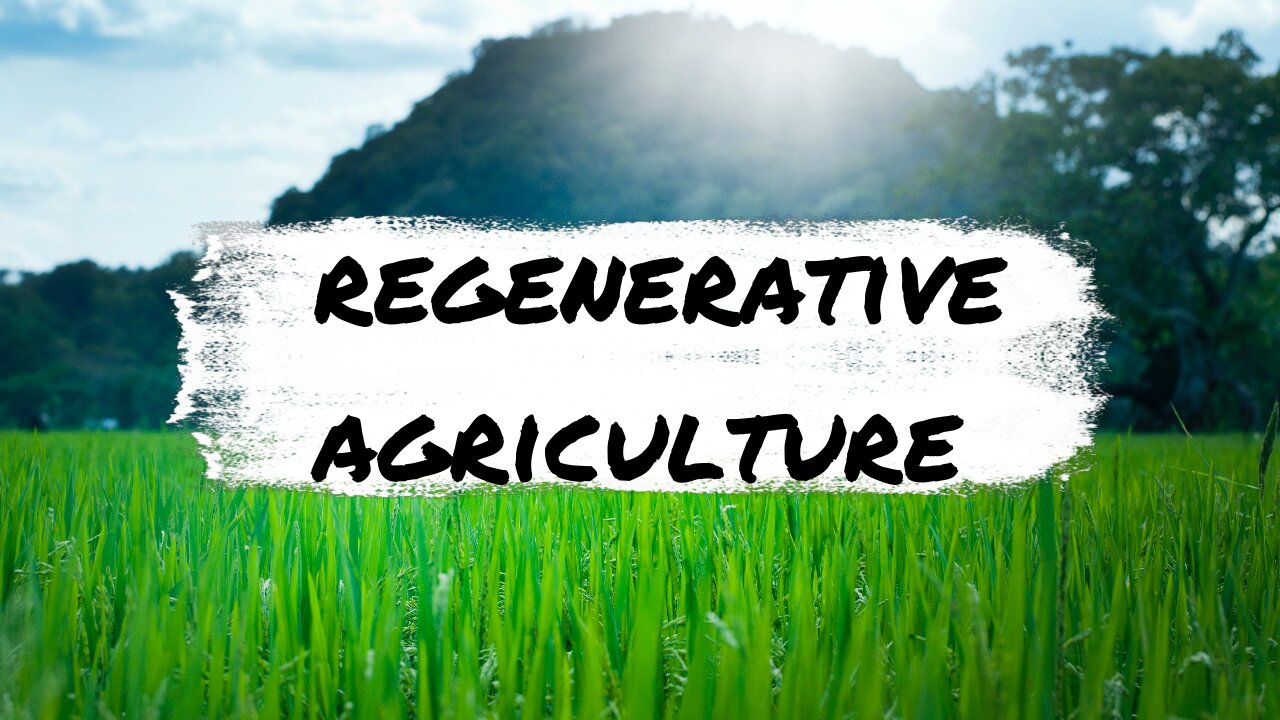Premium Only Content

What is Regenerative Agriculture/Permaculture?
#permaculture #regenerativeagriculture #cleanfood
Order from these farms today here: https://t.ly/Cz1K
Regenerative agriculture is an approach to farming and land management that aims to restore and enhance the health and fertility of the soil, promote biodiversity, and mitigate climate change. It focuses on practices that regenerate the natural ecosystems and improve the overall resilience of agricultural systems. Some key principles of regenerative agriculture include:
1. Soil health: It prioritizes building and maintaining healthy soil through techniques such as cover cropping, composting, and minimizing tillage. Healthy soil is crucial for nutrient availability, water retention, and carbon sequestration.
2. Biodiversity: Encouraging biodiversity is a fundamental aspect of regenerative agriculture. It involves integrating diverse crops, incorporating natural habitats within and around farms, and promoting beneficial insects and wildlife to support ecological balance.
3. Water management: Regenerative agriculture emphasizes efficient water use and reducing water pollution. Strategies include implementing conservation practices like mulching, contouring fields to prevent runoff, and promoting efficient irrigation systems.
4. Carbon sequestration: It aims to enhance carbon capture from the atmosphere and store it in the soil through practices like agroforestry, rotational grazing, and cover cropping. This helps mitigate climate change by reducing greenhouse gas emissions.
5. Holistic approach: Regenerative agriculture considers the entire ecosystem, including the relationships between soil, plants, animals, and farmers. It promotes sustainable and regenerative practices that benefit not only the environment but also the social and economic aspects of farming communities.
Overall, regenerative agriculture seeks to create a regenerative and self-sustaining farming system that improves soil health, biodiversity, water resources, and climate resilience while supporting sustainable food production and rural livelihoods.
-
 57:20
57:20
HotZone
7 hours ago $0.02 earnedWar Continues as Israel Strikes HARD in Lebanon and Iran
254 -
 LIVE
LIVE
Viss
3 hours ago🔴LIVE - Dominating The Battleground with Tactics! - PUBG
138 watching -
 1:38:15
1:38:15
Russell Brand
3 hours agoGlastonbury Goes RADICAL - Police Probe 'Death to the IDF' Chant - SF605
168K17 -
 1:32:42
1:32:42
Tucker Carlson
3 hours agoRFK Jr. Provides an Update on His Mission to End Skyrocketing Autism and Declassifying Kennedy Files
72.1K52 -
 1:09:56
1:09:56
Sean Unpaved
3 hours agoCode, Kill, Cash & Trades: Beasley Bets & NFL Trades
14K2 -
 1:06:29
1:06:29
MTNTOUGH Podcast w/ Dustin Diefenderfer
5 hours agoJeremy Noble: What Army Rangers Do Every Day to Build Unbreakable Mental Toughness | MTNPOD #122
17.1K -
 LIVE
LIVE
SternAmerican
1 day agoElection Integrity Call – Monday, June 30 at 2 PM EST | Hosted by Steve Stern & Raj Doraisamy
101 watching -
 1:04:25
1:04:25
Timcast
3 hours agoDemocrat Zohran Mamdani Calls For TAXING WHITE PEOPLE, Media Says HES NOT Communist
207K81 -
 1:04:27
1:04:27
Rebel News
3 hours agoPoilievre byelection called, Carney folds to Trump, Dr. Tam wins Order of Canada | Rebel Roundup
17K25 -
 1:38:13
1:38:13
Badlands Media
9 hours agoY-Chromes Ep. 39
24.3K3